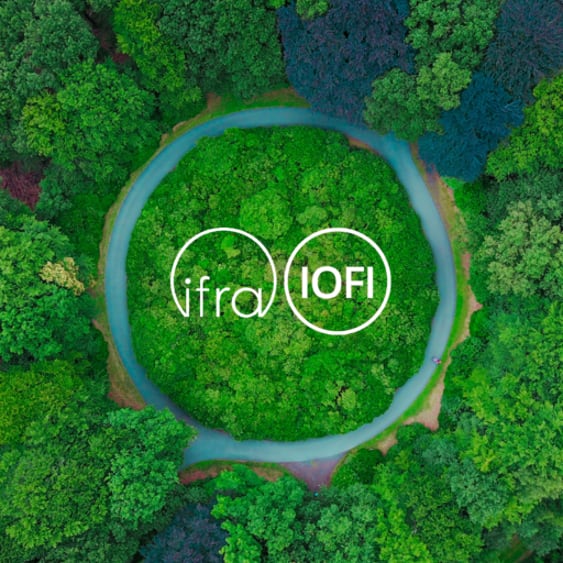More than one hundred flavour and fragrance companies have signed up to a Sustainability Charter developed by the International Fragrance Association (IFRA) and the International Organization of the Flavor Industry (IOFI).
The culmination of four years’ work, the project began life back in 2016 with a kick-off meeting that established a task force to look at the UN’s Sustainable Development Goals (SDGs) and how the concept of sustainability would work in the context of flavours and fragrances. The outcome, the IFRA-IOFI Sustainability Charter, has since been through a series of internal and external ‘reality checks’.
The Charter takes a life-cycle approach based on five focus areas: responsible sourcing, reducing environmental footprint, employee well-being, product safety, and transparency and partnerships.
The voluntary commitment has been designed to complement what IOFI and IFRA members are already doing within their own sustainability strategies. For this reason, its focus is on qualitative maturity indicators and it does not currently include specific time-bound targets.
“Our indicators are not quantitative but they measure the qualitative progress of the industry at large. We aggregate the data from the companies and we report on the maturity of the industry through percentage,” Martina Bianchini, IFRA president, told FoodNavigator. “Our members are already working on sustainability… but what has been missing is a connective framework at an industry level.”

Maxime Marchal, IOFI public affairs projects manager and sustainability lead, echoed this sentiment: “We have to understand the complementary aspect of this Charter with what our members are already doing. As Martina said, we were missing a collective approach on this. One of the initial objectives was to establish a common and inclusive frame that all our members, and especially the smallest, would be able to join.”
Raising all boats: ‘Every industry has leaders and laggards’
A central tenant of any robust CSR strategy is to make goals measurable and to set deadlines. However, when dealing with multiple companies at different stages of their sustainability journeys, a different approach is needed.
The IFRA-IOFI Sustainability Charter is a ‘common, inclusive framework’ that seeks to help the F&F sectors as a whole make advances by sharing best practice, providing tools, and benchmarking progress.
“The goal of the Charter is to raise the bar in the industry. In every industry you have leaders and laggards. The Charter establishes a framework, sets a bar and raises everybody,” IFRA’s president told us.
IOFI’s Marchal noted that over half of signatories come from small and medium sized organisations.
“It gives tools to the smaller and medium companies that don’t really know how to get started. They need a toolbox, a go-to person, a platform where they can meet. The Charter provides all of that,” Bianchini added.
A collective voice for collaboration
The Charter is intended as a platform to reinforce collaborative relationships within the industry as well as external stakeholders, including political institutions, civil society and NGOs.
An industry approach is necessary in discussions with bodies like the European Parliament, who are less interested in the details of the work individual companies are undertaking, Marchal revealed.
“When you go to European Parliament, for example, you need this industry approach to demonstrate your responsible behaviour. In the European Parliament, they are not interested in hearing what the big companies are doing. But if you can demonstrate you are working together in the same initiative, it is different,” he explained.
“It is very important and almost an imperative these days that a sector, in particular one like ours that is rooted in agriculture and nature, has a sustainability initiative… We are coming late to the game with this. We have been asked many times by authorities and stakeholders what we are doing at sector level,” Bianchini added.
The Charter demonstrates that the flavours and fragrances sectors ‘understand the problem’ and are translating these global challenges into what they mean for F&F businesses, the IOFI and IFRA representatives explained. “It shows you are aware, you understand the problem, you seek solutions and also you are willing to partner with others,” Bianchini noted.
A solid collaborative framework can also build faith with NGOs and other external stakeholders, Bianchini continued. “The NGOs often claim they are the only ones to think about these issues,” she suggested. The Charter helps to prove otherwise.
Marchal elaborated: “When it comes to civil society it is something we can use to demonstrate we are active in the field and we want to commit and progress on this.”

Supply chain relationships
The Charter not only provides a platform to strengthen ties with external stakeholders. It also aims to underpin close working relationships down the value chain. “It is about reinforcing collaboration along the value chain with our upstream and downstream partners,” Marchal noted.
“We are in the middle of the value chain. We look upstream and have a responsibility there for our suppliers. And we also look downstream to our customers, many of the big brand names, who also put demands on us,” Bianchini expounded.
“When you source from farms or smallholder providers it comes with an additional responsibility. We needed to put a framework around it so everybody knows what matters. It defines sustainability for smell and taste, and our position in the value chain.”
Sustainability: A journey not a destination
The launch of the IFRA-IOFI Sustainability Charter is an important ‘milestone in a journey’, Bianchini concluded.

“It is a big achievement, but we do know that the journey is much longer. Sustainability is a moving target. It’s not fixed in stone,” she said, pointing to the global COVID-19 pandemic as case in point. “The COVID crisis impacts everything you do and redefines some areas of what sustainability means. There may be supply chain disruptions that may need attention in the future,” she noted.
Part of the journey, for IFRA and IOFI, is to build a platform where members can ‘exchange views’ and learnings.
In the future, the organisations do not rule out implementing more ‘measurable progress’ but for the time being the vision remains one of a stepped process.
Marchal detailed: “The idea, when we have everybody on board, is to [assess] the maturity of the sector against the Charter. But then in the future maybe we can cause some more measurable progress. It is something we envision as a staggered approach.”
This will facilitate flexibility as the flavour and fragrance sectors continue to build a responsive and inclusive sustainability agenda.
“It is not a static process because you are always impacted by the outside world. We are part of nature; we take from nature and transform it into commercial goods. If there are any changes [in the external environment] it will always force us to revisit.”

